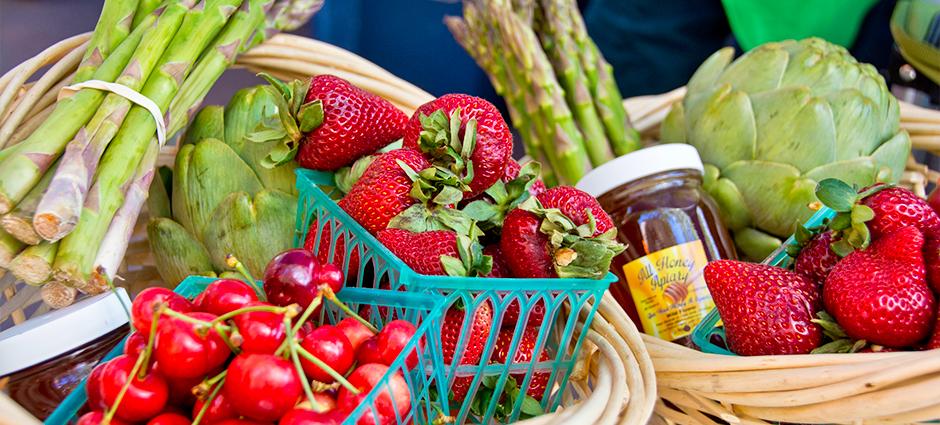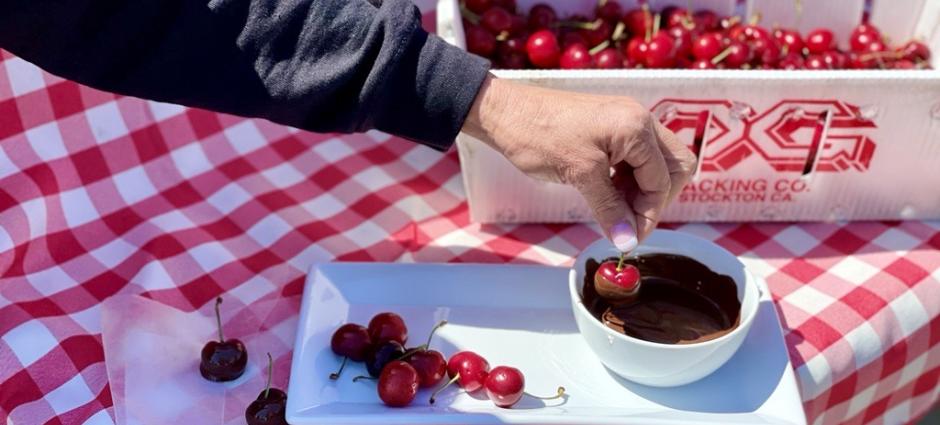Picnic Time! Summer Food Safety Tips
Posted June 22, 2021
Picnics and barbecues are a lot of fun, but in warm weather, you need to be particularly careful about handling the fixin's if you don't want to end up sick. Here are some cardinal rules for summer food safety:
Preparing Food Safely
- Wash hands before handling food. Use clean utensils and containers. Bacteria and viruses are carried on dirty work surfaces and hands.
- Do not prepare foods more than one day before your picnic unless you plan to freeze them. Cooking foods in advance allows another opportunity for bacteria to grow as the cooked food cools. Cool cooked foods rapidly and refrigerate as soon as possible.
- Mayonnaise-based food must be kept cold. Mayonnaise itself is too acidic for bacteria to grow in it, but when mixed with other foods, particularly those that have been handled a lot and are protein foods, bacteria can grow if kept too warm.
- Wash melons before cutting and keep them cold. Many people do not realize that melons, such as watermelon and cantaloupe can cause food-borne illness. Salmonella and Shigella (common causes of food-borne illness) are often present on the rind. Wash melons thoroughly before cutting, and refrigerate cut portions.
Packing Food Safely
- Keep hot food hot. Keep hot foods at 140°F or hotter to prevent the growth of harmful bacteria. Take-out foods or foods cooked just before being transported to the picnic can be carried hot. Wrap hot food in towels and newspapers, and place inside a box or heavy paper bag. Keep these foods warm on a lit grill or use them within one hour.
- Keep cold food cold! Keep cold food at 40°F or colder to prevent bacterial growth. Pack cold foods in insulated coolers with plenty of ice or frozen gel packs. Setting containers of food on top of the ice will not keep them cold enough. Transport coolers in the passenger cabin of your car, not in the trunk—a car trunk can reach 150°! When you arrive at the picnic site cover your cooler and place it in the shade to maintain cold temperatures. Keep coolers closed until ready to use the contents.
- Wash your hands! Pack moist towelettes before you leave for your picnic in case the site does not have facilities. Use antibacterial hand cleaner if needed. Hands carry tons of harmful bacteria and viruses that can contaminate food.
- Pack plenty of utensils and dishware. Never use those that have touched raw meats and poultry. Pack extra plates and utensils or use disposable plates and utensils to prevent cross-contamination.
Cooking Food at The Picnic
- Wash your hands or use moist towelettes to clean your hands before cooking.
- Thoroughly cook food all at one time. Never partially cook food, let it sit, then finish cooking later. This provides conditions that allow bacteria to grow.
- Meat and poultry must be cooked very thoroughly whether cooking indoors or outside. Poultry juices should run clear, hamburgers should not be pink in the center.
Serving Foods at the Picnic
- Keep cold foods cold and hot foods hot during the serving of the meal. Don’t let cold foods sit out for more than an hour.
- Prevent contamination. Keep foods covered to prevent contamination by insects and debris. Insects carry harmful bacteria and viruses on their bodies.
Handling Leftovers
- Because most picnic leftovers have been sitting out for more than one hour and have had many people handling them, throw them out! The more time that food has been sitting at an unsafe temperature, the more likely harmful bacteria will grow and will likely cause illness.
- Cold foods kept in a cooler that still has ice may be safe. If the ice has melted, throw out the food. Cold water cannot keep foods cold enough to be safe.
Most of all, have a good time—just be a little careful and everyone will avoid illness.

